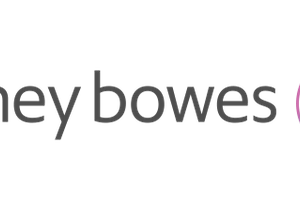Activist Shareholder Cruiser Capital Criticizes Ashland for Poor Governance and Misleading Statements
Cruiser Capital Advisors issued a letter to Ashland Global Holdings shareholders Monday, urging them to replace four board directors including the current chairman and CEO, citing a lapse in corporate governance and deliberate attempts to mislead investors about the company’s performance.
The letter, which was obtained exclusively by CorpGov.com, was the first time Cruiser Capital indicated the names of the directors it wants to replace at the company’s annual meeting on February 8. Those directors include Michael Ward, Brendan Cummins, William Dempsey, and William Wulfsohn, who is currently both chairman and CEO. The call to remove Mr. Wulfsohn as chairman, which wouldn’t directly impact his role as CEO, is somewhat unusual in proxy fights.
The letter comes as Cruiser Capital, which owns 2.5% of the $4.5 billion chemicals company, has pushed for operational improvements to help shore up its share price and proposed a slate of director candidates. Those candidates – Dr. Bill Joyce, Allen Spizzo, Carol Eicher, and Pat Gottschalk – all have extensive chemical-industry experience at either the CEO of CFO level. Cruiser Capital also launched a website, www.ElevateAshland.com, with information about its campaign.
Monday’s letter criticizes Ashland’s corporate governance, in particular the recent handling of the retirement of “lead independent director” Barry Perry. Mr. Perry has been widely expected to step down as he reached retirement age in accordance with the company’s own corporate governance guidelines, the letter says.
However, Cruiser Capital argues that the board of directors failed to act in the best interests of shareholders when reviewing replacement candidates for Mr. Perry. In fact, Cruiser believes that Ashland would simply have kept Mr. Perry in his current role were it not for pressure from itself and other shareholders.
“We believe the truth is that Ashland had no intention of retiring Barry Perry, just as Bill Wulfsohn indicated to us on October 15, 2018,” the letter says. Ashland didn’t immediately respond to a request for comment from CorpGov.com.
When Ashland did announce Mr. Perry’s retirement, it didn’t intend to seek shareholder approval. Instead, Ashland said on December 13 that the board would choose a new lead independent director on its own following the February meeting.
But after public criticism from Cruiser Capital later in December, Ashland said it would let shareholders vote on its suggested candidate after all. “We believe the Company’s subsequent announcement that they are adding Craig A. Rogerson to their slate of nominees at the Annual Meeting was a purely reactive step in response to Cruiser’s public criticism,” the letter states.
Cruiser Capital argues that such conduct by the board indicates a need to replace some members of the Governance and Nominating Committee. “In our view, the Governance and Nominating Committee of the Board bears particular responsibility for employing transparent and unprofessional entrenchment tactics (as outlined below and in our other filings), and failing to thoroughly review director candidates,” the letter says. “Directors on this Committee are theoretically charged with maintaining a Board that is independent and responsive to the concerns of all stockholders.”
Messrs. Ward, Cummins, and Dempsey represent three of the four current members of the Governance and Nominating Committee. Cruiser Capital says that while the company recently enacted a policy to rotate members on the committee once every four years, Ashland has a history of ignoring such guidelines.
“Ashland’s Corporate Guidelines already have an established policy that the Lead Independent Director may serve no more than three years,” the letter says. “Yet, Barry Perry has served as Lead Independent Director since 2010, despite this already established three-year limitation.”
Cruiser Capital also argues that the company would benefit from an independent chairman, given its questions about any “balance” provided by the lead independent director. “We question how “balanced” that is when there is no change in the Lead Independent Director for eight years, especially considering that this is the Director who led the process in the selection of the current CEO, and that same Director is the chair of the Compensation Committee which has paid the Chairman and CEO $43 million dollars over the past four years – despite very little growth or margin improvement in the core business over those four years,” the letter says.
Cruiser Capital also pointed out that the company’s total shareholder return under the leadership of Mr. Wulfsohn has lagged the S&P 500 since he took the helm. Shares of Carpenter Technology also lagged the benchmark index when Mr. Wulfsohn was the CEO of that company before joining Ashland, the letter says.
Ashland also has repeatedly cited share-price performance figures that give an inaccurate impression of the returns most shareholders have enjoyed. Cruiser Capital references an article on CorpGov.com entitled “The Myth of Ashland’s Superior Shareholder Returns – And What an Actual Investment Would Have Earned” that explains how some unreasonable assumptions in a calculation the company cites lead to inflated results.
For instance, Ashland shareholders who bought the stock in October 2013 and made no trades would have seen a return of 45.4% over the next five years, according to calculations by CorpGov.com. That return is 28.2 percentage points below the 73.6% return Ashland has cited.
There are other examples of potentially misleading communications. Cruiser Capital points out that the company has “tried to reset the date” of when it set performance targets for its Ashland Specialty Ingredients (ASI) division. ASI’s adjusted Ebitda margin target of 25% to 27% has been in place since at least 2014 – just before Mr. Wulfsohn became CEO. But in recent months, Mr. Wulfsohn has referred to those financial targets as projections from its 2017 Investor Day.
This is significant because the company has failed to reach that target, with the margin holding below that level from 23.3% in 2015 to 23.2% in 2018. Growth in adjusted Ebitda has also been sluggish over that timeframe.
Contact:
John Jannarone, Editor-in-Chief
www.CorpGov.com
Twitter: @CorpGovernor








